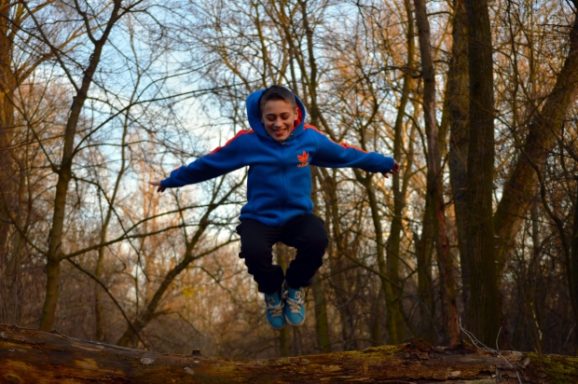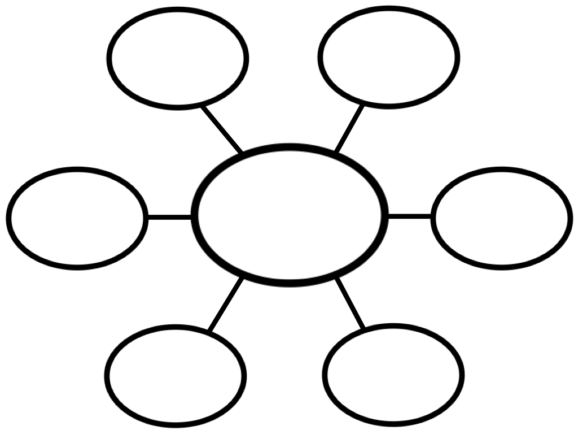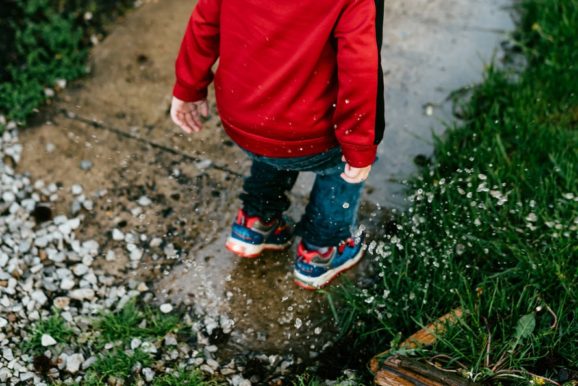Reciprocal teaching and cooperative learning are two of the best ways to have conversations about content. In the original definition of reciprocal teaching, the process is as follows: students make predictions about a part of text to be read. Continue Reading…
When I teach math, if the objective involves problem solving, I never use the problems in the book as my initial examples. Most do not have any real meaning for students. Continue Reading…
When I teach model lessons to K-12 students, I always play classical music before the lesson begins. If I am teaching elementary students, I go to each desk and introduce myself while they are listening to music. If the students are in middle or high school, I am at the door to greet them as they change classes. Continue Reading…
When students move while learning, they put information in procedural or muscle memory. Procedural memory is one of the strongest memory systems in the brain and the reason that one seldom forgets how to drive a car, ride a bicycle, play the piano, type on a keyboard, tie one’s shoes, or brush one’s teeth. Continue Reading…
IVAN CAPP: Interjection, Verb, Adjective, Noun, Conjunction, Adverb, Pronoun, Preposition (Language arts)
HONC if you’re alive! Hydrogen, Oxygen, Nitrogen, Carbon (Science) Continue Reading…
The use of the hands and brain activity are so complicated and interconnected that no one theory explains it. I can’t explain it either! I just know that some students need to have their hands involved before their brains can understand.
“Did you hear about the mathematician who’s afraid of negative numbers? He’ll stop at nothing to avoid them.”
If the math pun above made you laugh or even smile a little, it put your brain in a more positive state. Research tells us that jokes, riddles, celebrations, and other forms of positive interaction not only create a positive learning environment but may also facilitate learning itself. Continue Reading…
20 Instructional Strategies That Engage the Brain: #5 Graphic Organizers, Semantic Maps, & Word Webs
Whether referred to as concept, mind, or semantic maps or as word webs, graphic organizers are one of the best friends of a teacher who desires to facilitate the comprehension of students’ brains, so they are beneficial to all. Continue Reading…
As I travel around the United States presenting, I am realizing that the fun has gone out of teaching and learning in so many classrooms. With increased emphasis on standardized testing, benchmarks, and accountability, school is just not fun anymore! Continue Reading…
A while back, I was invited to present for the Honolulu Association for Supervision and Curriculum Development. My husband and I went one week earlier than the day on which I was to present so that we could enjoy the scenic beauty and historical significance of our 50th state. I will never forget spending one of those days at Pearl Harbor. Continue Reading…
I worked for 30 years with a major school district in the metropolitan Atlanta area. Even though I have been retired from that system since 2003, I still have a vested interest in the district. I have a granddaughter who goes to school in the district and a son-in-law who teaches physical education there. I was very concerned when I looked at the headlines of a neighborhood newspaper that arrived at my house. Continue Reading…
Thousands of years of history support one major concept: When students are actively engaged in experiences with content, they stand a much better chance of learning and remembering what we want them to know. Continue Reading…
There appears to be a recent movement among some parents that childhood should be a carefree and joyful time and that their children are happier when all rules and responsibilities are taken away. Nothing could be further from the truth. Continue Reading…
Several years ago, my husband Tyrone and I were in New York City when I saw something that made me cringe internally. We were in a hotel lobby in Manhattan when I spotted a double stroller. In the stroller were two adorable children who looked to be about 2 and 4 years old. Built into each section of the double stroller was a DVD player. Continue Reading…
Remember when you were little and you used to play outside for hours on end? Or maybe you’d be inside in a playroom pretending to be a teacher or an astronaut or a princess? Or you would be enjoying watching videos for babies with your parent? When children engage in play, they’re do much more than entertaining themselves. They’re learning and growing; they’re turning into well-adjusted human beings. Continue Reading…














